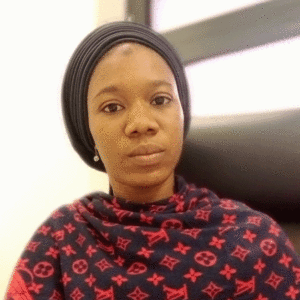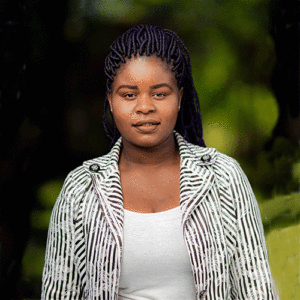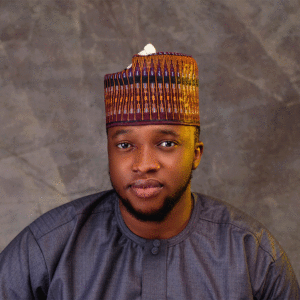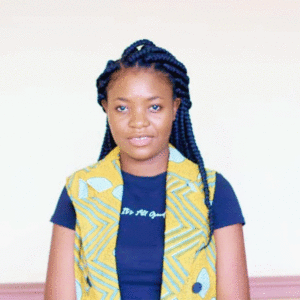
Gender, Climate Change, and Solution-Driven Dialogue
Youth Leaders Weigh In
January 12, 2022
By: Tess Mpoyi
This post was originally published on the Knowledge SUCCESS website. To view the original post, click here.
In September 2021, Knowledge SUCCESS and the Policy, Advocacy, and Communication Enhanced for Population and Reproductive Health (PACE) Project launched the first in a series of community-driven dialogues on the People-Planet Connection Discourse platform exploring the links between population, health, and the environment. Representatives from five organizations, including youth leaders from PACE’s Population, Environment, Development Youth Multimedia Fellowship, posed discussion questions to engage participants around the globe on the links between gender and climate change. The one week of dialogue generated dynamic questions, observations, and solutions. Here’s what PACE’s youth leaders had to say about their experience and their suggestions for how the discourse can be translated into concrete solutions.
PACE’s Youth Leaders

Sakinat Bello

Brenda Mwale

Mubarak Idris

Joy Munthali
Q: Briefly share your experience serving as a lead facilitator for the People-Planet Connection dialogue.
Mubarak Idris, Bridge Connect Africa Initiative (BCAI), Nigeria: It was exciting to have open dialogues on climate change and harmful gender norms and practices. Some of the participants reached out to me to learn more, which goes to show how much this discourse was needed.
Sakinat Bello, Break-Free From Plastic Awareness Initiative, Nigeria: Participants shared their experiences from different countries, showing the issues women and girls face during climate-related displacement are visible and cannot be overlooked. There is a need for multisectoral approaches to address these issues.
Joy Munthali and Brenda Mwale, Green Girls Platform, Malawi: It was a new and thrilling experience for us to talk about gender integration and entry points for women’s empowerment in climate change responses.
Q: Briefly share your background in the topic. How did your participation in the discussion tie in with the work of your organization?
SB: I work as a program director for Break-Free From Plastic Awareness Initiative, a nongovernmental organization that works to create awareness and action to combat environmental degradation. We work to make sustainability relatable for the young and old while providing practical, sustainable solutions to tackle issues, especially the amplified rate of climate change in Nigeria.
MI: I work as the digital campaigns manager for BCAI, a nongovernmental organization that serves to empower young people, women, and girls with credible and quality reproductive health information to make informed choices. We work with local communities in northern Nigeria to amplify the voices of young girls and secure commitments from state leaders by creating and disseminating compelling, evidence-based advocacy videos focused on ending child marriage and increasing access to youth family planning services.
JM and BM: We are from Green Girls Platform, a female-led organization that works on girls’ and women’s empowerment, especially providing girls and women with sustainable climate change adaptation options that work in their contexts. One of our current projects is an advocacy campaign on gender mainstreaming in the implementation of climate change management policy in Malawi.
Q: What was one interesting observation or comment you noted from the discussion?
JM and BM: The most outstanding observation for us was how multilateral funds, like the Green Climate Fund, that have been set up to address climate change do not successfully mainstream gender in their implementation strategies.
SB: I observed that efforts are more focused on quick and short-term responses when issues arise, rather than mitigating them before they happen or providing a long-term response.
Q: What was one question you think needs to be explored more deeply?
SB: What are the short- and long-term sustainable responses needed to help address the vulnerability of women and girls in regard to climate change?
MI: I am a firm believer [in] solution-driven dialogue that will inform citizens on how to ensure that we put an end to harmful gender norms. It is important for us to have open conversations and brainstorming sessions on how to provide solutions that will give rise to environmentally conscious citizens who promote gender equality.
JM and BM: How can we integrate gender more purposefully into climate change responses and adaptations at the community, national, and international levels?
It is important for us to have open conversations and brainstorming sessions on how to provide solutions that will give rise to environmentally conscious citizens who promote gender equality.
Q: What would you like to do with the information from the discussion? How do you propose it be used?
JM and BM: We will use the information gathered to come up with advocacy campaigns that purposefully focus on integrating gender into climate change responses and empowering women. This will also help us organize awareness campaigns on gender mainstreaming in climate responses so that women and girls are informed and hopefully join our advocacy campaigns.
MI: I will use the information gathered to inform my conversations on population, health, and [the] environment. It is imperative for young people to know how harmful societal norms affect their quality of life and access to basic health needs.
SB: I have used this information during focus group discussions on women and climate change to spark conversation and intend to use it in future discussions, both in online and offline platforms, to inform decisions and inspire change.
About the Youth Champion Discussion Leads
Green Girls Platform
Mission statement: Ensuring that girls and young women in Malawi have sustainable adaptation and mitigation
options that enable them and their families to be lifted out of poverty.
Advocacy priorities:
- More spaces for women and girls to actively participate in climate change activities.
- Protection and promotion of girls’ and women’s rights (especially gender-based violence resulting from climate change).
- A clean and healthy environment for all.
Bridge Connect Africa Initiative
Mission statement: Creatively engaging young people towards amplifying and building a voice around women’s
rights, adolescent and youth sexual and reproductive health and rights, and girls’ education in their communities.
Advocacy priorities:
- Sexual and reproductive health and rights.
- Girls’ education.
- Women’s rights.
- Sustainable development.
Break-Free from Plastic Awareness Initiative
Mission statement: Educating, empowering, and uniting people to advocate for effective climate change solutions.
Advocacy priorities:
- Deforestation and environmental degradation.
- Sustainable energy.
- Preservation of plant and animal species.
The responses above have been lightly edited for length and clarity. Additional editorial support was provided by Heidi Worley and Elizabeth Leahy Madsen of the PACE Project.



